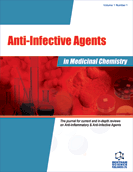Abstract
Insulin-dependent diabetes mellitus is among the most common metabolic disorders in humans. It results from the graduate loss of function and progressive destruction of insulin-producing beta cells in the pancreatic islets of Langerhans. Several factors have been implicated in the pathogenesis of the disease, including host genetics, autoimmune responses and environmental factors. Viruses are among the environmental factors considered to play crucial role in the initiation and progression of the disease. Since the first data on virus-induced diabetes were reported, growing experimental evidence accumulated, showing that neurotropic viruses, members of different taxonomic groups, participate in the etiopathogenesis of insulin-dependent diabetes in both experimental animals and in humans. There are at least three mechanisms of virus-induced diabetes: (i) direct damage of pancreatic beta cells due to viral cytolytic infection, (ii) induction of proinflammatory cytokines secretion, and (iii) triggering of beta cell-specific autoimmune reactions. The data so far demonstrate that enteroviruses are the most frequent etiological agents of acquired insulin-dependent diabetes in humans. Thus, development of antivirals, inhibitors of enteroviral replication, is considered to be of major importance in the prevention and treatment of this disease. Chemoprophylaxis in individuals at higher risk of diabetes incidence might successfully prevent the onset of type 1 diabetes. The review of available chemotherapeutic agents points out several highly active compounds in experimental studies, first favorable data being obtained in clinical trials. Drug resistance is specified as the main obstacle limiting the development and application of effective chemotherapeutic agents convenient for enterovirus-induced diabetes mellitus prevention. Administration of antivirals in combination with suitable biological response modifiers could serve as a basis for elaboration of the most prospective strategy for prevention and treatment of acquired virus-induced diabetes.
Keywords: Neurotropic viruses, enteroviruses, insulin-dependent diabetes mellitus, antiviral chemotherapeutic agents, biological response modifiers
 6
6





















